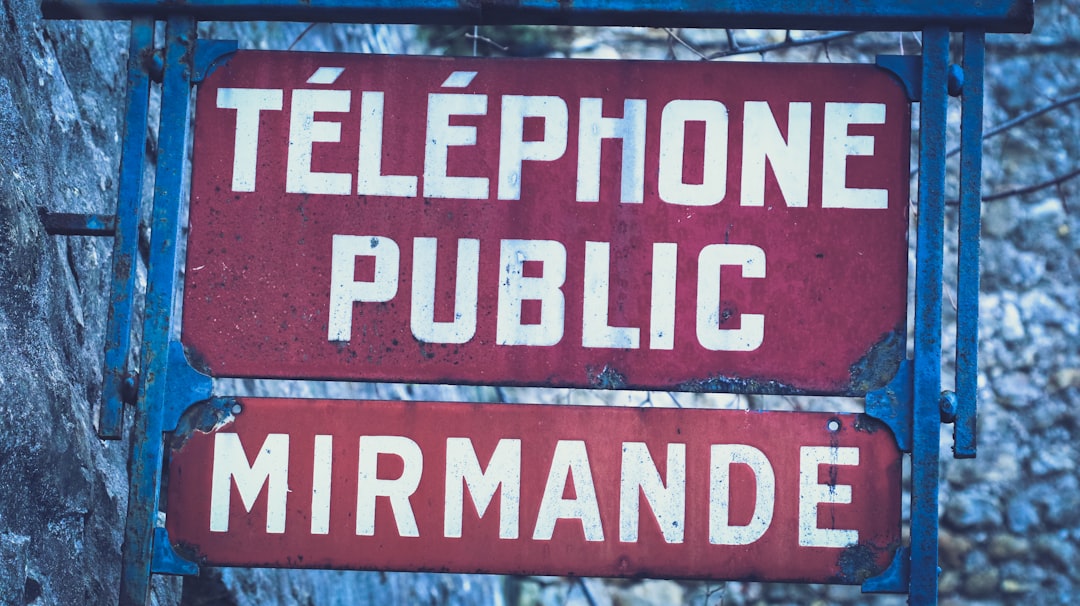Wyoming's anti-spam laws protect residents from deceptive and unsolicited text messages, empowering individuals to take action against spammers through legal channels. Consulting a local spam texts Attorney Wyoming is advised for guidance on rights, compliance, and resolution, with the state's Attorney General's Office taking serious incidents of spam actively.
In Wyoming, deceptive text messages are not just an annoyance—they can be illegal under the state’s stringent anti-spam laws. This comprehensive guide delves into Wyoming’s definitions of and penalties for deceptive SMS communications, clarifying who’s liable, including spammers and attorneys. Understanding your rights as a Wyoming resident is crucial, especially with the increasing prevalence of spam texts. Learn how to protect yourself and what legal actions you can take with the help of an attorney in this informative piece.
Understanding Wyoming's Anti-Spam Laws

Wyoming’s anti-spam laws are designed to protect residents from unwanted and deceptive text messages, commonly known as spam texts. These regulations are crucial in ensuring that individuals’ privacy is respected and their communication channels remain uncluttered by unsolicited messages. Under these laws, businesses and organizations are prohibited from sending mass text messages for marketing purposes without prior consent from the recipients.
If you’re a Wyoming resident who has received spam texts or is concerned about potential legal implications, consulting with an Attorney Wyoming can provide clarity. Legal experts specializing in this area can guide individuals on their rights and help them navigate the complex landscape of communication regulations to ensure compliance and protect against potential legal repercussions.
Definition of Deceptive Text Messages

Deceptive text messages, also known as spam texts, refer to unsolicited and misleading communication sent via mobile devices. In Wyoming, these messages often violate consumer rights by concealing their sender or containing false or deceptive content. Such practices can include impersonating a business or individual, making false promises, or using misleading language to entice recipients into providing personal information or performing actions that may be detrimental to them.
When it comes to legal repercussions, Wyoming laws empower individuals to take action against deceptive text messages. If you’ve received spam texts, an Attorney in Wyoming can help you understand your rights and explore legal avenues for resolution. This may involve sending cease-and-desist letters, reporting the issue to relevant authorities, or even pursuing legal action against the sender to protect your privacy and stop further harassment.
Who is Liable? Spammers vs. Attorneys

In Wyoming, determining liability for deceptive text messages is a nuanced legal matter. When it comes to spam texts, the primary focus falls on holding spammers accountable for their unethical practices. However, in cases where attorneys or legal entities engage in misleading messaging, the dynamics shift significantly.
Attorneys in Wyoming enjoy professional protections, but they are not immune to legal repercussions if found guilty of deceptive text messaging. The key lies in distinguishing between legitimate legal communications and those designed to mislead or harass recipients. Understanding these fine lines is crucial for both spammers and attorneys alike, as the consequences can range from financial penalties to reputational damage.
Legal Actions and Penalties

In Wyoming, sending deceptive text messages is considered a serious offense and can lead to legal repercussions. If an individual or business engages in spam texts with misleading or false content, they may face legal actions initiated by both state authorities and affected recipients. These cases are handled by the Wyoming Attorney General’s Office, which has the power to investigate and prosecute such instances.
Penalties for deceptive text messaging can be severe. They include substantial fines, often ranging from hundreds to thousands of dollars per violation. Additionally, offenders may be required to compensate victims for any financial or emotional damages caused by the spam texts. The state’s strict regulations aim to protect consumers from deceptive practices and ensure that individuals and businesses uphold ethical communication standards when using text messaging as a marketing tool.
Your Rights as a Wyoming Resident

As a Wyoming resident, you have specific rights when it comes to deceptive text messages. According to state laws, businesses and individuals sending spam texts must adhere to strict guidelines to protect consumers. This includes obtaining explicit consent before sending any marketing or promotional messages via SMS. If you’ve received unwanted or misleading text messages, you can take action. Consulting with a local Wyoming attorney specializing in consumer protection law can help you understand your rights and pursue legal options if necessary.
If you feel your privacy has been violated or you’re being targeted by repeated spam texts, an attorney can guide you through the process of filing a complaint with relevant authorities. They can also assist in sending cease-and-desist letters to offenders, ensuring they stop contacting you. Remember, protecting yourself from deceptive text messages is not just about avoiding annoyance; it’s about upholding your rights and maintaining control over your personal information in today’s digital age.






